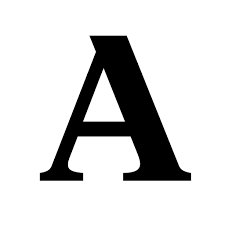Call for papers (issue 6, 2024)
Call for Papers
Literary Adaptations in the Films of David Cronenberg
Coordinated by Juan Agustín Mancebo Roca (Universidad de Castilla-La Mancha) and Manuel Arjona España (Universidad de Málaga)
Consumed (2014) was David Cronenberg’s first —and so far only— literary creation. The novel revisits the recurring themes of Cronenberg’s cinematic work that have made him one of the essential auteurs of contemporary times. With this book’s publication, the Canadian filmmaker finally realized the desire first nurtured in his youth, and shaped by the works of Vladimir Nabokov and William Burroughs, to become a writer when he studied literature at the University of Toronto.
The truth is that beyond this novel, which is a mere footnote when it comes to his cinematic corpus, literature has always been a central axis in the world of Cronenberg, as he translated into indelible images the fictional universes of such diverse writers as Burroughs, J.G. Ballard, Don DeLillo, and Stephen King, among others.
In fact, we could say that his first adaptation, The Dead Zone (1983), marked a paradigm shift in Cronenberg’s oeuvre, moving away from the realm of B-movies to delve into an authorial corpus in which he explored bodily transformations dictated by bio-technological agents, where the scientist and the artist intertwine their methodologies. Since then, most of his films have been literary adaptations.
If the concept of "The New Flesh" has long been established in Cronenberg's work, it is necessary to emphasize that several of the adapted writers’ works were devised to explore new narrative forms—such as the conjuring of interior fictional realities coupled with the chronicling of real daily atrocities in Ballard, or the depiction of drug-induced altered consciousness in the case of Burroughs. Moreover, Cronenberg’s collaboration with both writers went beyond literature to establish a spiritual communion in which the director would uniquely adopt literary works that, up to that point, were considered impossible to bring to the screen.
Among contemporary filmmakers, Cronenberg’s work has probably received the most attention from specialists, especially its figurative political commentary. However, the relationship between literature and his cinema still remains, in the terms relevant to us here, an area to explore. There have not been many studies that focus on the relational elements between literature and adaptation, integrated within an overarching view of the director’s cinematic corpus.
This special issue of Trasvases entre la literatura y el cine (6, 2024) proposes to study the connections and influences of the works adapted by Cronenberg to the screen in order to explore the transformation of these texts under the canadian author's gaze.
Contributions can be approached from various perspectives, always keeping in mind during the comparative exercise the process of transferring the texts to the screen, their aesthetic and ideological reading, the specifically cinematic means by which this transfer is carried out, the production context, the integration of the adaptations into a filmography dominated by an overarching vision, as well as the frictions between the text and its images.
List of adaptations:
The Dead Zone (1983)
The Fly (1986)
Dead Ringers (1988) [assigned]
Naked Lunch (1991) [assigned]
Madame Butterfly (1993)
Crash (1996)
Spider (2002)
A History of Violence (2005)
A Dangerous Method (2011)
Cosmopolis (2012)
Contributions will be subject to double-blind peer review. The rules of the journal (which stipulate a maximum length of 60,000 characters, spaces included) and the guidelines for authors can be consulted here:
https://revistas.uma.es/index.php/trasvases/article/view/7466/6954
Papers must be uploaded to the journal's platform by 30 April 2024: http://www.revistas.uma.es/index.php/trasvases/user/register
In order to organize contents and avoid overlapping, a provisional title and a summary of the article should be sent to the same email addresses before 15 December 2023. This will allow for a more efficient organization of the whole. A copy of the article should also be sent to the coordinators of the monograph, Juan Agustín Mancebo (Juan.Mancebo@uclm.es) and Manuel España Arjona (manuelesp@hotmail.es), and to the editor of the journal, Rafael Malpartida (rmal@uma.es).
The articles destined to the miscellaneous section will be expected for the same deadline: el 30 de abril de 2024.
Juan Agustín Mancebo
Manuel España Arjona





22.png)










